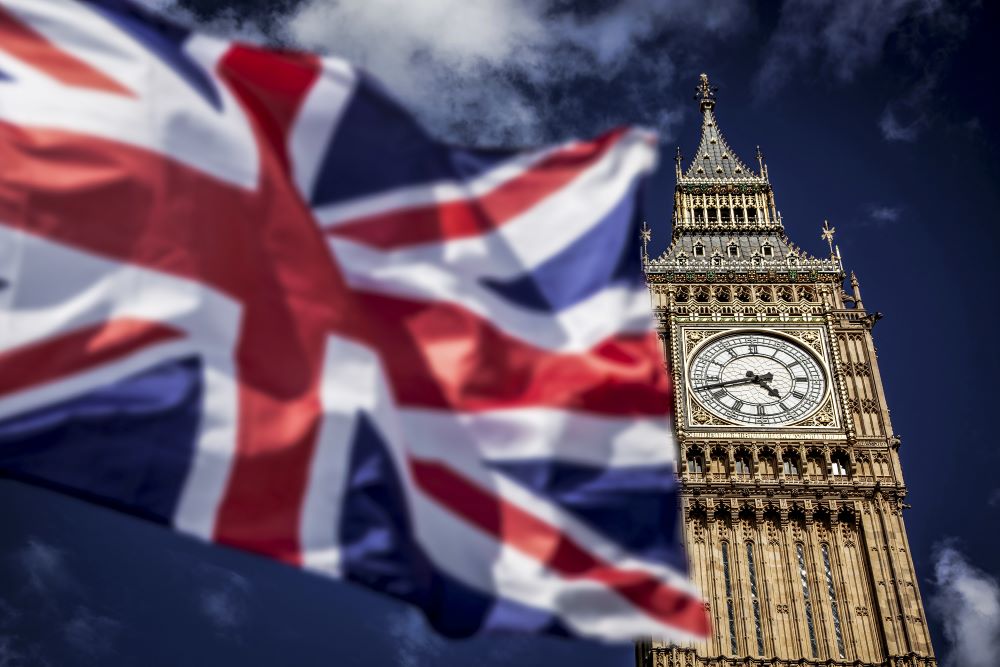
Trade experts at the Institute of Export & International Trade (IOE&IT) have welcomed Chancellor Jeremy Hunt’s plan to lift UK growth by focusing on enterprise and education, but have also said that exports should be a key plank of the country’s economic recovery.
Hunt used his first major speech since November’s autumn statement to rule out tax cuts and to reiterate that the government’s focus was on fighting inflation. He said his plan for growth was based on “four Es: enterprise, education, employment and everywhere”.
Speaking at Bloomberg’s European headquarters in London, he added that the government planned to achieve growth in multiple sectors including digital technology, green industries, life sciences, advanced manufacturing and creative industries, reports the BBC.
Innovation key
Hunt’s plan to lift the UK’s economic growth also focused on Britain’s record of innovation.
He said the UK’s advanced manufacturing sector in particular was “key to exports, where we produce around half of the world’s large civil aircraft wings and its biggest aeroengines as well as around half of the world’s Formula One Grand Prix cars”.
“The golden thread running through the industries where the Britain does best is innovation,” he said. “Those innovation industries now account for around a quarter of our output. They have been responsible for nearly all our productivity growth since 1997.”
Exports are key
The IOE&IT’s director general Marco Forgione welcomed the backing of UK innovation and each of the Chancellor’s ‘four Es’, while saying that exports should also be given a central role in the growth plan. He said:
“The Chancellor’s plan rightly prioritises enterprise and education, and maintaining low unemployment levels, while ensuring the recovery works for all parts of the country, is also very important.
“We firmly believe that the recovery will be more resilient and speedier if trade is at its heart, so we would encourage the Chancellor to add a ‘fifth E’ - exports.
“Our exporter monitor reports in 2022 found that the number of businesses trading internationally was on the decline in each part of the country. It’s vital that we reverse this by raising awareness of the benefits of exporting and the support that is available.”
Mixed response
Other business groups criticised a lack of detail in the plans, with IoD chief economist Kitty Ussher saying government action was needed “to counteract the negative mood”. She also called for the government to continue the capital investment super-deduction and to bring in tax credits for employers who invest in skills.
Make UK, which represents the manufacturing industry, said there had been “some hugely damaging big picture issues caused by the absence of an industrial strategy which are impacting on some of our strategic sectors”.
The opposition
Labour’s shadow chancellor, Rachel Reeves claimed it was only her party’s plans that could build on Britain’s potential, reports the Guardian.
“Thirteen years of Tory economic failure have left living standards and growth on the floor, crashed our economy, and driven up mortgages and bills,” she said. “The Tories have no plan for now, and no plan for the future.”
The Labour Party is due to be hosting more than 200 business leaders and over 100 ambassadors, diplomats and high commissioners at a trade event this evening. A party spokesperson told Politico’s London Playbook today that the leadership will show that “is a party that it is pro-trade, pro-business and pro-worker.”
Digital innovation
Grace Thompson, a public affairs adviser at the IOE&IT, said that the focus on digital technology within the Chancellor’s speech was important:
“It was notable that the Chancellor spoke about the changing nature of digital technology, particularly in relation to the way we buy and sell goods and services. This is reflected in Parliament currently, with the development of the Electronic Trade Documents Bill legislation.
“We firmly believe that an export-led recovery will include the continual development of digital technology, whether this is through the increased use of digital trade corridors or digitalising trade processes in other ways.
“Businesses will rightly be looking for more detail about how the next government will tangibly support them to enter international markets during what remains a challenging economic period. We will continue to monitor both Labour and Conservative policy going forward to see what further proposals they have in relation to exports policies in particular.”



